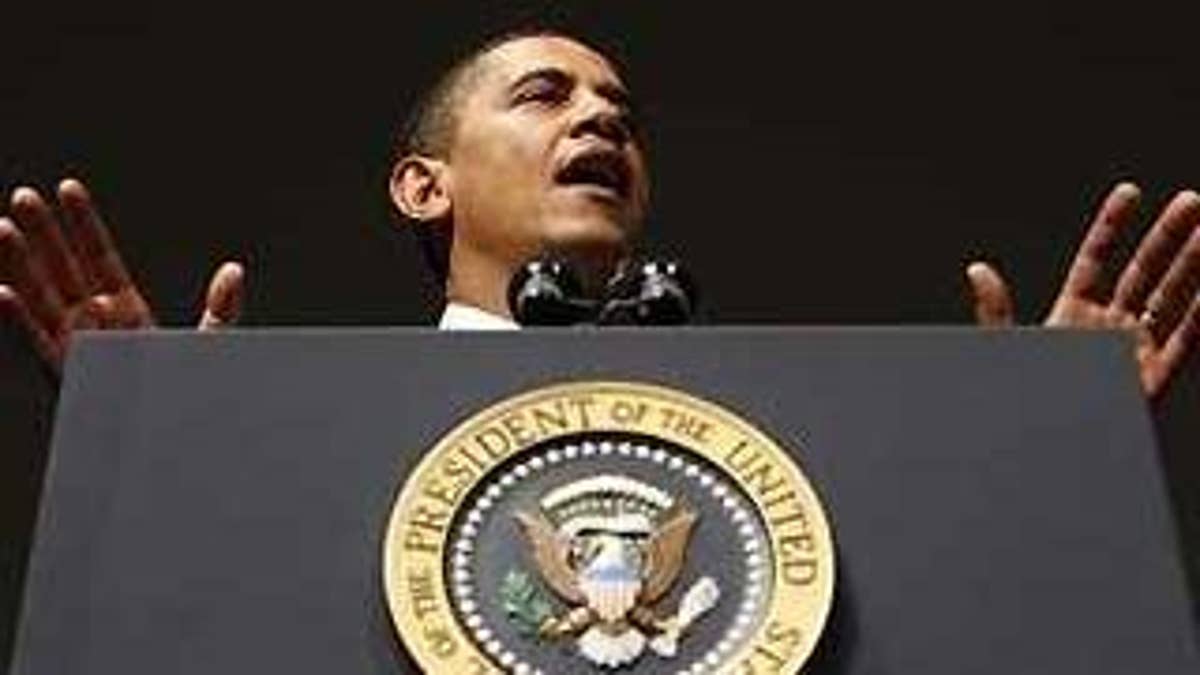
Right off the bat, President Obama made it clear that his administration would try a change in tone in the way the U.S. battles terrorism around the world.
He announced during his first week on the job that he would shut down the detention facility at Guantanamo Bay within a year, keeping a campaign pledge. Then his administration stopped using the term "War on Terror," favoring instead "overseas contingency operation."
Though the new administration is trying to recast the war and better define the legal bounds of its fight against extremism, it has along the way drawn the scorn of officials from the Bush administration.
They contend that Obama is losing sight of the threats against the homeland, reviving the mindset of the Clinton era when terrorism was treated more as a criminal offense than an act of war.
"One of the worst things we could do is start to act now as though the attack of 9/11 is a thing of the past and will never be repeated. That's just not true," former Vice President Dick Cheney recently told FOX News.
He complained that dropping the term "War on Terror" suggests the country is no longer at war.
"It's not just 'no more War on Terror,' according to (Homeland Security Secretary) Janet Napolitano. We don't have terrorist attacks anymore -- we have man-made disasters," said Marc Thiessen, George W. Bush's former speechwriter, referring to Napolitano's reluctance to use the words terrorist or terrorism.
Juan Zarate, who served as Bush's deputy national security adviser for combating terrorism, also noted that closing Guantanamo will not be an easy task and that Bush wanted to do the same.
"The problem that the Bush administration faced and that no doubt the Obama administration is facing is the fact that you have hardened, trained Al Qaeda-connected individuals who are in Guantanamo and there is not an easy solution as to where they should go or what process should attend to them," he said.
Obama drew the most fire, though, for his decision this month to release top-secret memos about CIA interrogations and then open the door for potential prosecution of the lawyers who drafted them.
"The decision to release these memos is quite literally the most irresponsible and dangerous thing an American president has done in his first 100 days," Thiessen said. "The information contained in these memos is the keys to how we interrogate and question terrorists."
Obama said he decided to release the memos because so much of the information in them was public.
But even Obama's national security critics give him credit for his first authorization of the use of force -- employed when pirates off the Somali coast were holding American ship Capt. Richard Phillips hostage. Obama's authorization allowed Navy snipers to take out three of the four pirates April 12 and take the fourth into custody.
"I think he needs to be given credit and the administration needs to be given credit for allowing the professionals to do their job and to do it well," Zarate said.
Analysts suggest Obama will earn the highest marks on national security when he heeds the advice of military commanders and intelligence officials -- and predict he'll do poorly when he allows political advisers to influence his decisions.
FOX News' Mike Emanuel contributed to this report.




